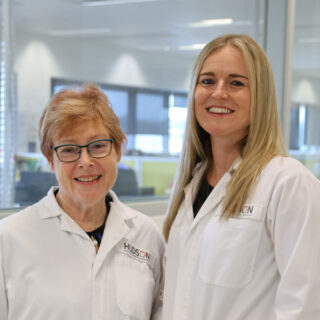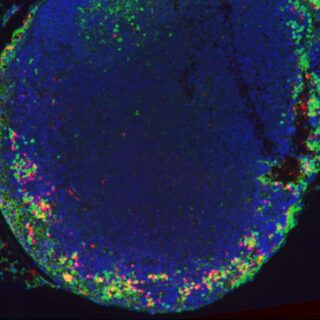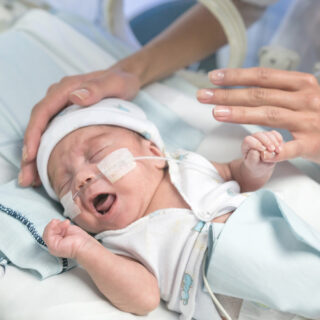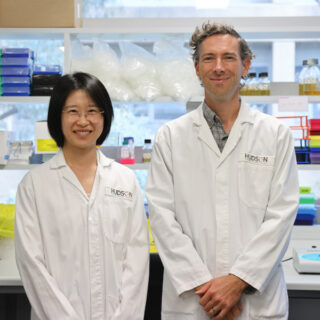News
Popular searches: Influenza, Childhood cancer, Endometriosis, Inflammation
-

Extracellular vesicles: A promising frontier in treating preterm brain injury
Despite advances in neonatal care, effective treatments for brain injury in premature babies remain a significant unmet need. Researchers at Hudson Institute of Medical Research, working with the School of Clinical Sciences at Monash Health, are tackling this challenge head-on with an innovative approach: engineered extracellular vesicles.… Read more
-

Endometriosis 2025 – all your questions answered
Endometriosis researchers, Professor Caroline Gargett and Dr Fiona Cousins answer your most frequently asked questions relating to this chronic inflammatory disease effecting one-in-seven menstruating people. … Read more
-

Leader cells key to stopping ovarian cancer’s double impact
A diagnosis of ovarian cancer carries a dual threat – the disease itself and the danger of the cancer spreading – but the latest research from Hudson Institute has uncovered a crucial factor, leader cells, that are crucial to both.… Read more
-

NHMRC Investigator grant success 2025
Research projects that will improve the lives of people with autoinflammatory diseases, hypertension, cancer and perinatal brain injury have been recognised in the latest National Health and Medical Research Council (NHMRC) Investigator Grants, announced by Federal Minister for Health and Ageing, The Hon Mark Butler MP.… Read more
-

Creatine & pregnancy – good for baby’s brain
There is growing evidence that creatine may be beneficial as a pregnancy supplement, and new research from Hudson Institute suggests it could have benefits in protecting the brain when a baby is starved of oxygen.… Read more
-

AI-based fetal monitoring to prevent perinatal brain injury
A new AI-driven approach to fetal brain health monitoring will enable early detection of fetal distress, allowing for timely interventions to prevent brain damage and reducing unnecessary medical interventions, thanks to Monash Institute of Medical Engineering (MIME) project grant support.… Read more
-

Next-generation degradable 3D meshes to repair POP
A debilitating condition affecting one in four women is desperately crying out for a solution, and the next generation of treatments to repair the damage of pelvic organ prolapse (POP) has just come a big step closer.… Read more
-

Double success for Hudson Institute with Brockhoff Foundation
A pair of exciting Hudson Institute research projects has received funding for the next two years from the Jack Brockhoff Foundation.… Read more
-

Genetic analysis CAPS search for a cure
A rare and debilitating group of autoinflammatory diseases is closer to a cure thanks to a world first genetic analysis project at Hudson Institute.… Read more
-

Research winners good news for kids with cancer
Hudson Institute’s Centre for Cancer Research is a major winner in the Medical Research Future Fund (MRFF) 2024 Paediatric Brain Cancer Research grants.… Read more
